Demand for minimally invasive treatments continues to rise around the world. Interventional radiology (IR) in particular is indicated for a broad range of conditions and has numerous advantages over more traditional surgical options, often significantly decreasing associated morbidity and mortality. Examples include image guided abscess drainage, nephrostomy and biliary tube placement, uterine fibroid embolization, and embolization in the setting of trauma, GI bleed, or postpartum hemorrhage. However, many developing countries have limited or complete lack of to IR services. According to the WHO over 4 billion people globally lack access to diagnostic imaging, with likely more than 5 billion lacking access to IR. As of 2017, there was not a single interventional radiologist in Tanzania, leaving a population equivalent to that of California and New York combined without access to a broad range of life-saving treatments. Over the four three years, the “Tanzania Interventional Radiology Initiative” has initiated East Africa’s first IR training program, training the first generation of interventional radiologists in the country. Africa’s first Master of Science in IR curriculum at Muhimbili University in Dar es Salaam was officially announced in October 2019 (https://www.muhas.ac.tz/uploads/files/LATE%20PG%20APPLICATIONS%202019-2020,%20ADVERT%20(inter,%20neuro,%20plastic).pdf), which gives testament to the rapid progression of the training program. An overview of the program was recently published in the Journal of Vascular and Interventional Radiology (https://authors.elsevier.com/a/1a5EP3k%7EjJIwHy).
While this program most immediately serves the 60 million people living in Tanzania, training IR physicians locally will have regional impact. One of our IR fellows trained in Tanzania for instance is from Rwanda and has recently returned there after completion of training in October 2021 in order to expand our efforts there and start training the first generation of Rwandan IR trainees (which currently also does not have a single IR physician).
I believe that expanding the many obvious benefits IR already provides to patients in developed nations can be quickly expanded to billions of people around the world in developing nations by training young physicians locally. IR provides a broad range of life-saving procedures and can have an immediate impact, as has been demonstrated in Tanzania over the past several years. I want to support and expand these efforts and contribute to building IR services in Africa, potentially reaching over one billion people who currently have no access to these important treatments.
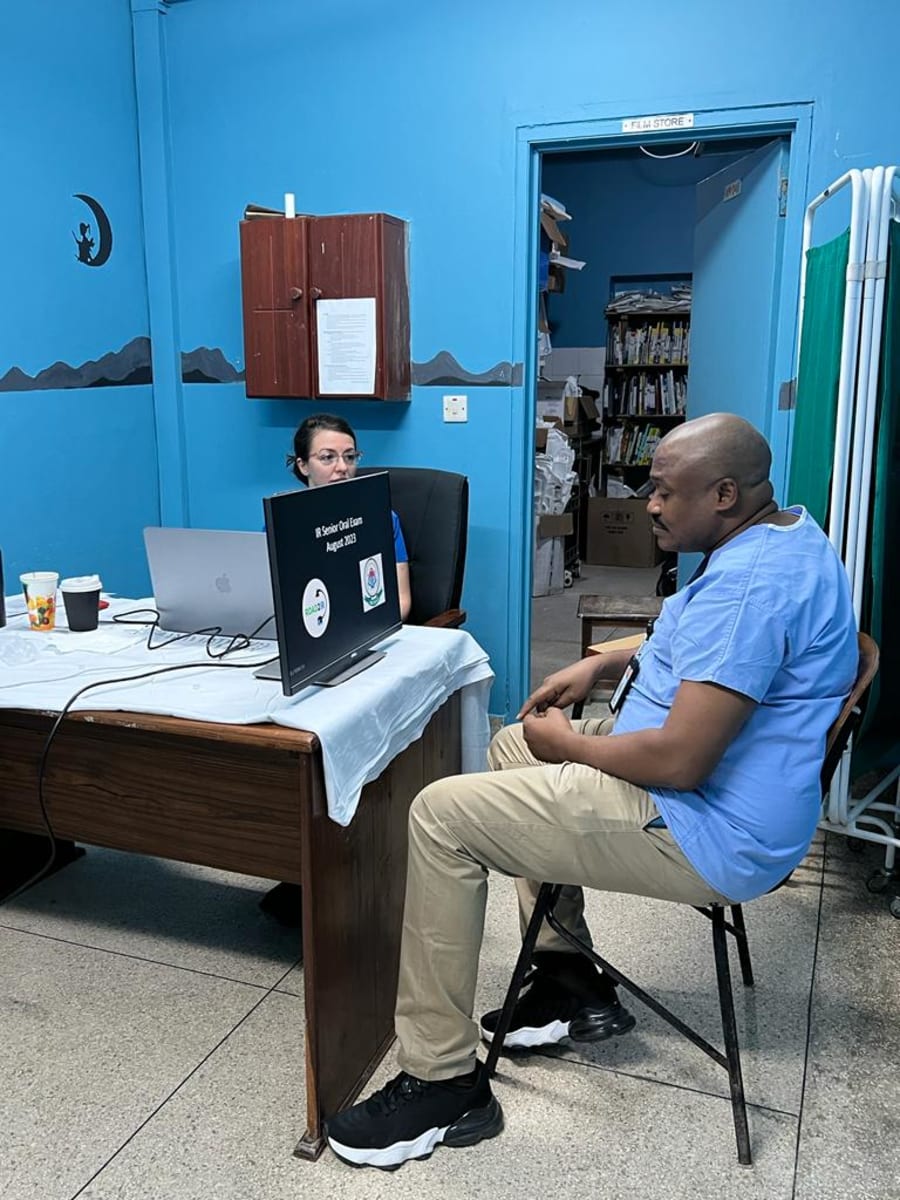
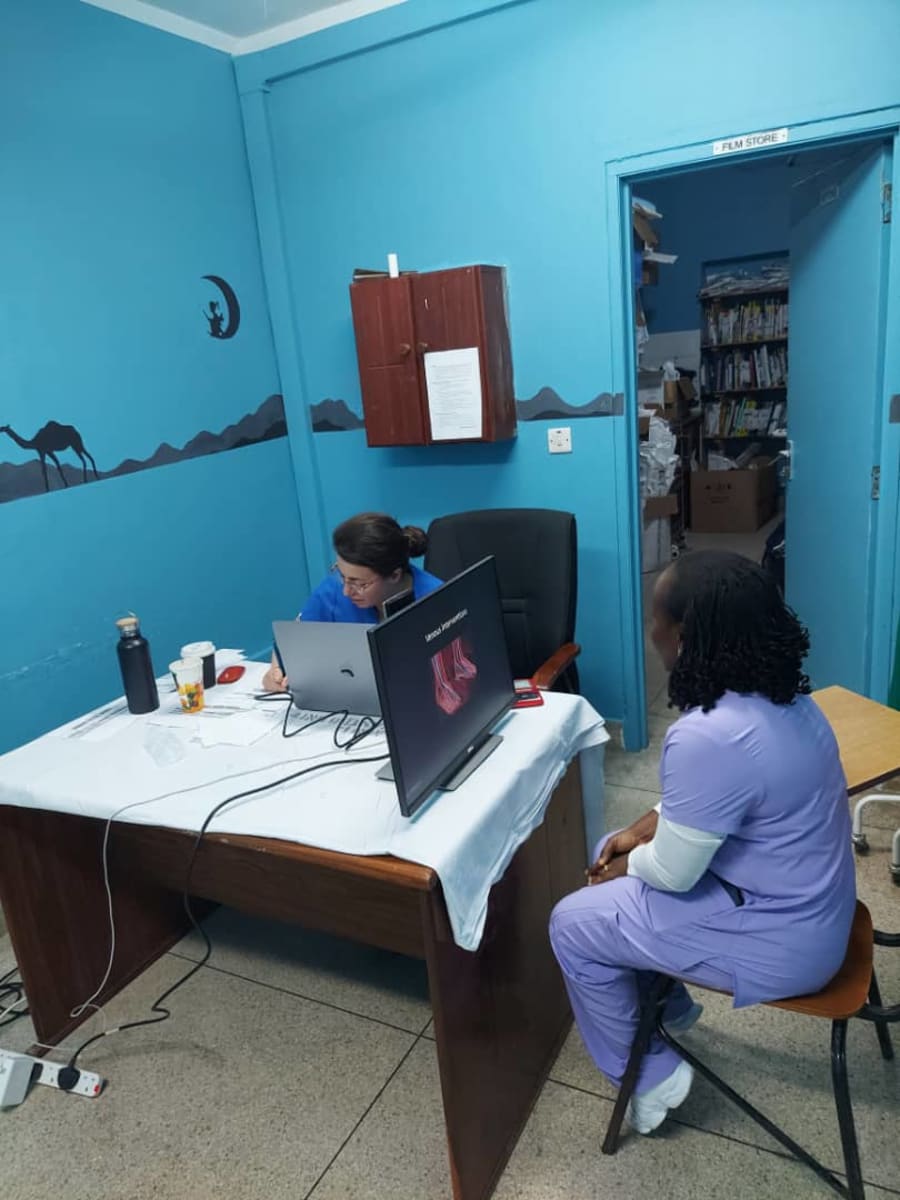
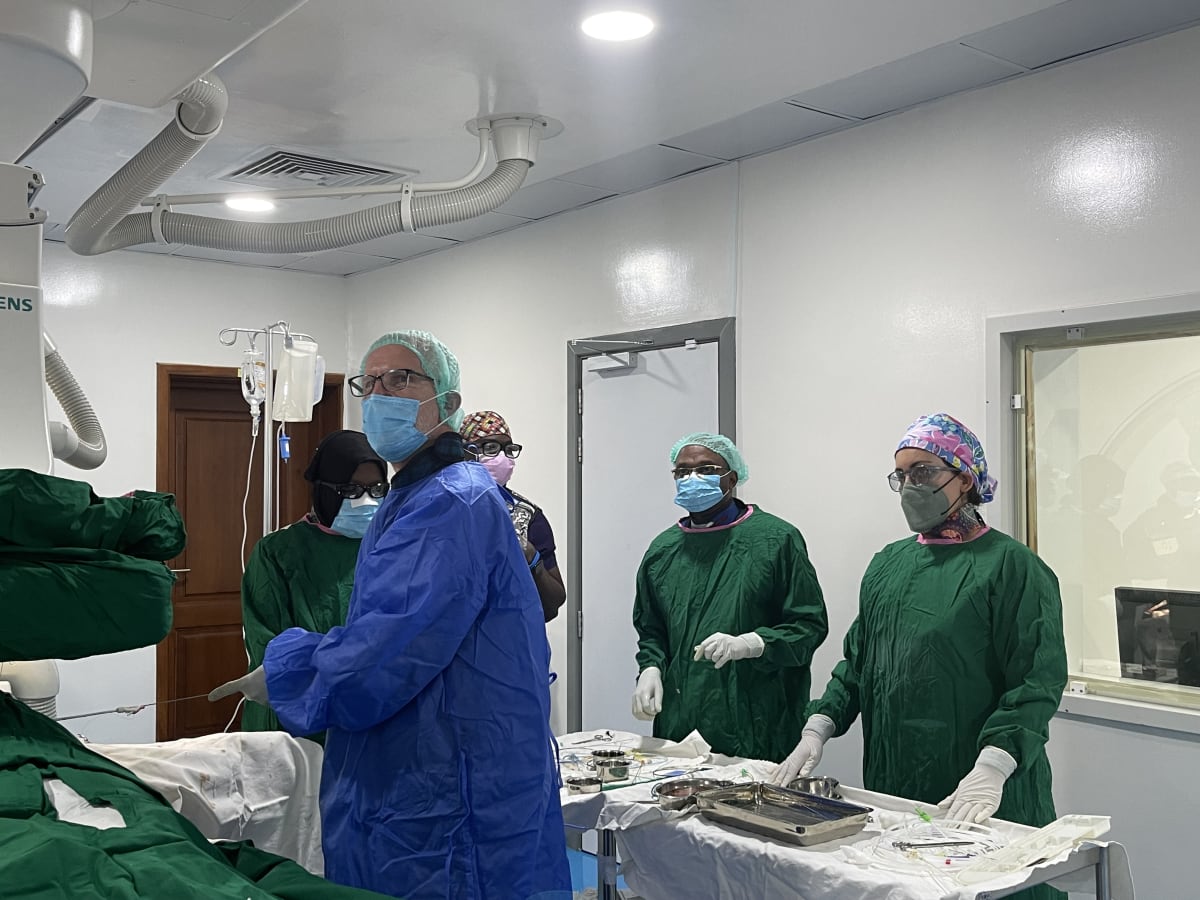
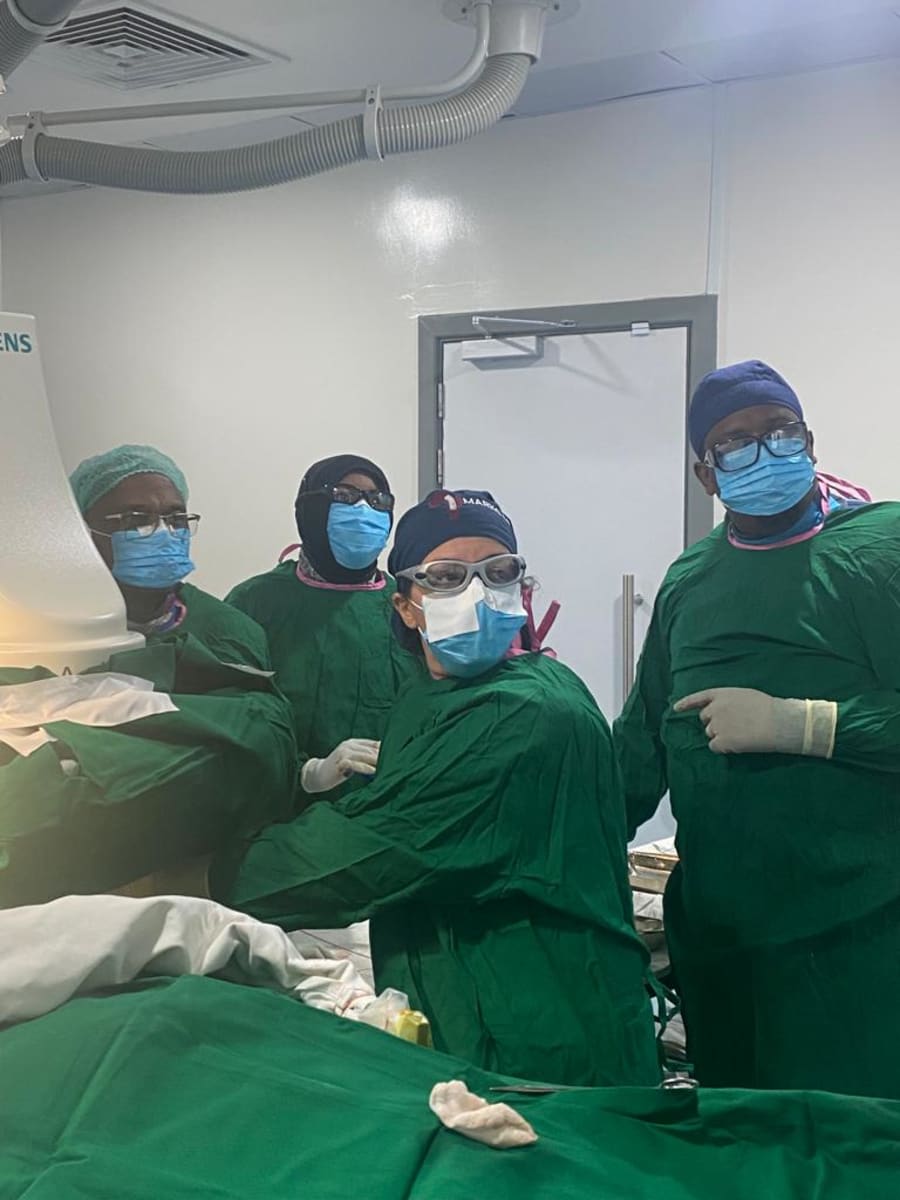

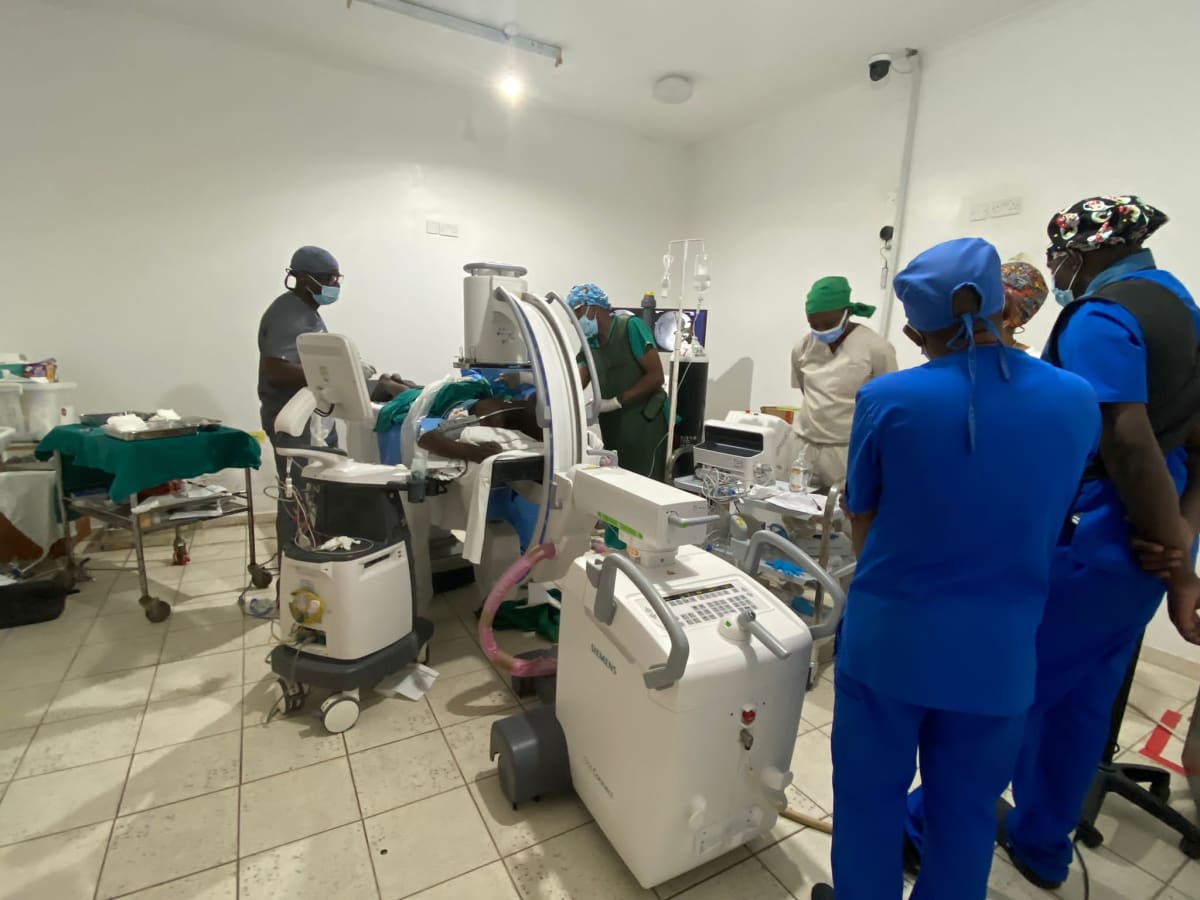
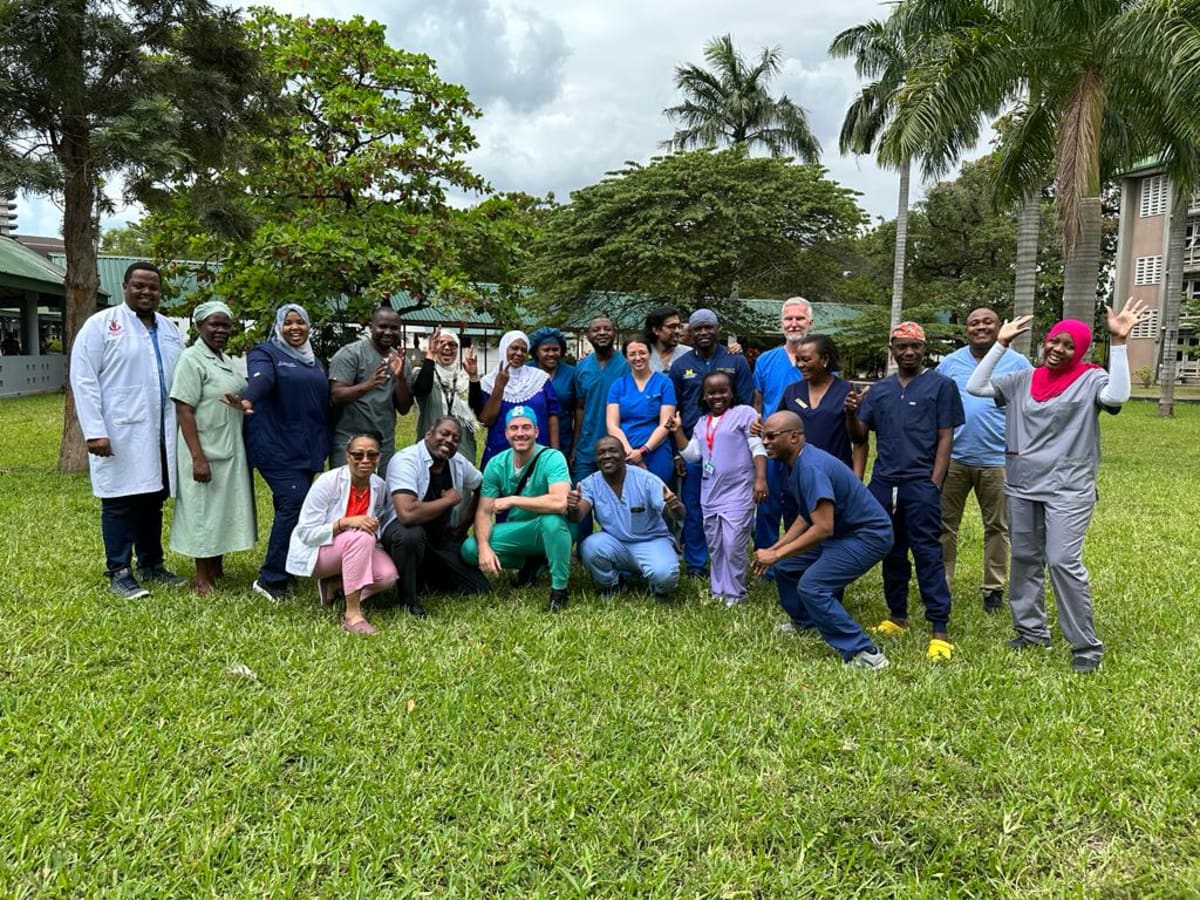







Our tip to Tanzania is very important and especially to the training fellows there. The fellows are hungry for knowledge and learning everything that they can possibly learn from us, every tip and trick in different cases, learning about equipment and different tools (even though those tools may not be available right now to them). We teach them technique, things that you cannot learn in books.
But most importantly, the patients are the ones that are mostly impacted by our presence there. These are sick people that come to the hospital in hopes of a miracle. And even though miracles do not happen in medicine, we certainly impact their lives by making it possible for them to get dialysis, by draining their infections, by curing their liver cancers.